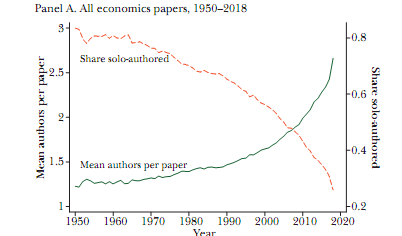
Enjoyed the presentation by @elianalaferrara today at World Bank DIME of work joint with Baumgartner, Rosa-Dias, Breza and my awesome coauthor Victor Orozco: evidence around a peer education program targeting early sexual activity teen pregnancy in Brazil.
The authors have a fascinating evaluation comparing a peer educator program with three alternate selection mechanisms for educators (school-driven; selection via peer nomination of popularity; selection by centrality in a formally mapped network) to a control arm.
In general, the peer education program is very effective: ⬆️ knowledge and communication around sexuality, contraceptive use; ⬇️ teen pregnancy. The peer educators chosen by schools (the default method), however, were generally ineffective!
Meaningful treatment effects are driven by the arms in which popular or network-central adolescents were peer leaders. Fascinating look at an important topic; many programs (for youth + adults) rely in some way on peer leadership, but selection method rarely carefully examined.
The default is usually to accept volunteers or leave it up to authorities (like schools) who might impose their own, not necessarily well-informed criteria. This evaluation provides strong evidence that's suboptimal.
Just realized @vicorozc is on twitter. Awesome paper!
• • •
Missing some Tweet in this thread? You can try to
force a refresh





